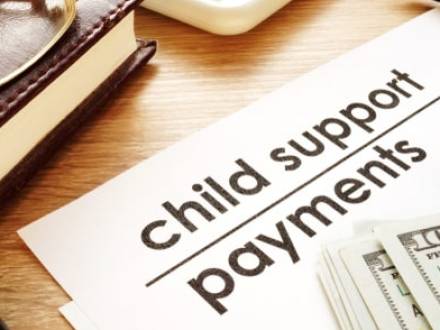Recent Blog Posts
Who Pays for Divorce If One Spouse Cheated?
 According to the American Psychological Association, between 20 and 40 percent of all divorces are caused by infidelity. That being said, while the discovery of an affair can be the catalyst that sets a divorce in motion, in most cases, there were other issues in the marriage prior to the affair. Marital problems that are not addressed can lead an unhappy spouse to turn to someone outside the marriage.
According to the American Psychological Association, between 20 and 40 percent of all divorces are caused by infidelity. That being said, while the discovery of an affair can be the catalyst that sets a divorce in motion, in most cases, there were other issues in the marriage prior to the affair. Marital problems that are not addressed can lead an unhappy spouse to turn to someone outside the marriage.
Approximately 40 percent of spouses who have ever cheated are separated or divorced, while only about 17 percent of those who have not cheated are separated or divorced. Overall, women are less likely than men to ask for a divorce when they find out their spouse has cheated. Infidelity in a marriage can obviously cause a lack of trust between spouses and may even be the primary reason for divorce. The ways that a cheating spouse impacts a divorce can be more subtle but do exist.
An Overview of Asset Dissipation in an Illinois Divorce
 Although we more often hear about adultery and betrayal surrounding the end of a marriage, financial betrayal can also trigger a divorce. When there is extreme financial malfeasance from one spouse, the other spouse may be left with significantly fewer assets to depend on in the future. Although Illinois is a no-fault divorce state, it does recognize financial betrayal and dissipation of marital assets. Proving dissipation in divorce can be an uphill battle, best addressed by an experienced Oswego, IL family law attorney.
Although we more often hear about adultery and betrayal surrounding the end of a marriage, financial betrayal can also trigger a divorce. When there is extreme financial malfeasance from one spouse, the other spouse may be left with significantly fewer assets to depend on in the future. Although Illinois is a no-fault divorce state, it does recognize financial betrayal and dissipation of marital assets. Proving dissipation in divorce can be an uphill battle, best addressed by an experienced Oswego, IL family law attorney.
What Is Dissipation of Marital Assets?
Dissipation of marital assets is generally defined as one spouse’s use of marital assets for his or her sole benefit and for a purpose that is unrelated to the marriage during a time when the couple’s marriage breaks down. There are many different forms of misconduct that can contribute to the dissipation of marital assets, even "loaning" family members large amounts of money, with the intent of having them give the money back to the loaning spouse after the divorce is final.
How to Adopt Your Stepchild in Illinois
 The government does not track stepparent adoptions as a category on its own; rather, these adoptions fall under the broader umbrella of "family adoptions." Family adoptions may also include adoptions by grandparents, aunts, uncles, siblings, and other family members. One study by the National Council of Adoption estimated that stepparent adoptions make up as much as 50 percent of the family adoption category.
The government does not track stepparent adoptions as a category on its own; rather, these adoptions fall under the broader umbrella of "family adoptions." Family adoptions may also include adoptions by grandparents, aunts, uncles, siblings, and other family members. One study by the National Council of Adoption estimated that stepparent adoptions make up as much as 50 percent of the family adoption category.
Adopting a stepchild can be an exciting and meaningful process for your blended family. Under Illinois law, stepparent adoption allows a stepparent to become the legal parent of their spouse's child. This transfers all the rights and responsibilities of legal parenthood to the adoptive stepparent. If you are considering stepparent adoption, an Aurora, IL lawyer can help make the process easier by knowing exactly what steps to take.
A Brief Guide to Child Custody in Illinois
 While in theory, fathers and mothers have the same chance of being awarded primary custody (known as the allocation of parental responsibilities in Illinois), in practice, fathers in the state only obtain the majority of parenting time about 23.1 percent of the time. While custody schedules are detailed and complex – making them difficult to compare – it appears politics have some impact on custody.
While in theory, fathers and mothers have the same chance of being awarded primary custody (known as the allocation of parental responsibilities in Illinois), in practice, fathers in the state only obtain the majority of parenting time about 23.1 percent of the time. While custody schedules are detailed and complex – making them difficult to compare – it appears politics have some impact on custody.
States that are seen as "red," or Republican, only award equal parenting time for mothers and fathers about 22 percent of the time, while "blue" or Democrat states give equal custody about 40 percent of the time. On average, a divorced dad living in a largely Republican state will see his child 400 fewer hours each year than a blue-state dad.
Whether you are a mom or dad in the state of Illinois who is going through a divorce, you should not let these statistics either encourage or dishearten you. Judges do their best to determine what division of parenting time is in the child's best interests and then order an agreement that most accurately reflects that decision. Talking to a St. Charles, IL family law attorney can be extremely helpful if you are facing divorce and are worried about how parental responsibilities will be allocated.
How Can I Get More Child Support for My Child’s Expenses?
 A report released in November 2023 by the U.S. Census Bureau found that 4.1 million parents were receiving cash payment child support. About 2.7 million parents received non-cash support in the form of groceries, clothing, diapers, childcare payments, or medical expenses. Most parents receiving child support (88 percent) did so through court orders, while only about 12 percent had an informal agreement with the other parent.
A report released in November 2023 by the U.S. Census Bureau found that 4.1 million parents were receiving cash payment child support. About 2.7 million parents received non-cash support in the form of groceries, clothing, diapers, childcare payments, or medical expenses. Most parents receiving child support (88 percent) did so through court orders, while only about 12 percent had an informal agreement with the other parent.
Almost 21 percent of parents receiving child support have reached out to a governmental agency for help in getting the support payments they are owed. Typically, the parent who spends less time with the children pays child support, although this may not always be the case if the parents’ incomes are highly disparate. In cases where custody is roughly 50/50, the parent with the higher income may be required to pay child support to the other parent.
Child support is meant to keep the child’s standard of living as close as possible to where it was when his or her parents were married. The state of Illinois presumes that both parents will contribute financially to the costs associated with raising children. If you have questions regarding child support, speaking to an experienced Yorkville, IL family law attorney can be extremely beneficial.
What is Needed For an Annulment in Illinois?
 There are two types of annulments - a civil annulment and a religious annulment. A civil annulment, like a divorce, terminates a marriage, but it also invalidates the marriage entirely – as though it never happened. Religious annulment has the same effect, but it is a choice made by those whose religion disallows or disfavors divorce.
There are two types of annulments - a civil annulment and a religious annulment. A civil annulment, like a divorce, terminates a marriage, but it also invalidates the marriage entirely – as though it never happened. Religious annulment has the same effect, but it is a choice made by those whose religion disallows or disfavors divorce.
A civil annulment may precede a religious annulment or stand on its own. On a global scale, the Catholic Church issues only about 60,000 annulments each year, the majority of which take place in the United States. Although only about 6 percent of the world’s Catholics live in America, as of 2015, they accounted for between 55 and 70 percent of all religious annulments.
Civil annulment statistics in Illinois are combined with divorce statistics, making it difficult to know how many occur. The last year the two were reported independently was 2011 when there were 94 annulments in Illinois. In Illinois, an annulment is called a judgment of invalidity. The meaning is the same as an annulment, but the outcome is the same.
Does Retirement Affect Spousal Maintenance?
 Retirement can bring major life changes, including a slower pace of life and the opportunity to finally relax a bit. Once retirement occurs, financial adjustments may also need to be made. If the retiring individual is either paying or receiving spousal maintenance, will this change the amount of the payments – or end them entirely? For the paying spouse, does retirement mean the spousal support can be reduced? If so, is it automatic? These are all important questions. To get the best answers for your unique situation, speak to an experienced Aurora, IL family law attorney.
Retirement can bring major life changes, including a slower pace of life and the opportunity to finally relax a bit. Once retirement occurs, financial adjustments may also need to be made. If the retiring individual is either paying or receiving spousal maintenance, will this change the amount of the payments – or end them entirely? For the paying spouse, does retirement mean the spousal support can be reduced? If so, is it automatic? These are all important questions. To get the best answers for your unique situation, speak to an experienced Aurora, IL family law attorney.
What Does Your Divorce Agreement Say?
What was the award of spousal maintenance based on, and what was the length of the maintenance under the statutes? A judge can deviate from Illinois statute, but generally does not. So, the duration of spousal support is based on the length of the marriage in years, multiplied by the associated percentage to determine how long the spousal support will be paid. For example, for a marriage of less than five years, the percentage multiplier is 20 percent.
The Importance of Protecting Your Privacy During Divorce
 More than a decade ago, a prominent politician testified about a number of personal issues during a divorce deposition. It is a safe bet that this politician never thought about these details coming out many years later when he decided to run for one of the highest public offices.
More than a decade ago, a prominent politician testified about a number of personal issues during a divorce deposition. It is a safe bet that this politician never thought about these details coming out many years later when he decided to run for one of the highest public offices.
Divorce is the end of a chapter and the beginning of a new one and can be one of the most anxiety-inducing experiences of your lifetime. You may be sad about your divorce or glad to finally have it done with, but regardless, to the extent possible, you need to make sure your privacy is protected throughout your divorce.
In particular, if you are a high-net-worth individual or are well-known (nationally or in your own community), the last thing you want is for everyone to know your business. All documents created and filed during your divorce are open to the public and accessible by those with an interest unless you obtain a court order that restricts public access.
Are Stay-At-Home Parents Entitled to an Equal Share of Assets?
 If you are contemplating divorce or are in the middle of one, you may be worried about your financial future, especially if you have been a stay-at-home parent for some or all of your marriage. While marital assets are just that—marital, subject to an equitable split—if you do not have the financial security from a regular income or recent work experience, divorce can leave you feeling very vulnerable.
If you are contemplating divorce or are in the middle of one, you may be worried about your financial future, especially if you have been a stay-at-home parent for some or all of your marriage. While marital assets are just that—marital, subject to an equitable split—if you do not have the financial security from a regular income or recent work experience, divorce can leave you feeling very vulnerable.
If your children are still very young, the situation can feel even more precarious. The cost of childcare can be prohibitively expensive; for many, the paycheck they earn barely covers daycare and the most basic expenses. Now is the time for you to be proactive as you deal with this life transition. Speak to a highly skilled Batavia, IL family law attorney who can advocate for your financial future throughout the divorce.
Will You Receive a Fair Share of Marital Assets?
Illinois is an equitable distribution state. Unlike community property states that divide marital assets equally, equitable distribution states divide marital assets fairly. Even though your spouse may have been the only one bringing home a salary, this does not mean that the work you did as a stay-at-home parent has no worth. The parent who stays home with the children is usually a housekeeper and a cook while also caring for the children. Any one of these could potentially be considered a full-time job, albeit unpaid.
Does a Spouse Have Rights to the Other’s Personal Injury Award?
 Dividing up the marital assets is often one of the more contentious aspects of an Illinois divorce. First, marital assets must be clearly separated from one spouse’s separate assets, and then a fair division of the marital assets must be undertaken. Unfortunately, it is sometimes difficult to determine which assets are separate and which are marital.
Dividing up the marital assets is often one of the more contentious aspects of an Illinois divorce. First, marital assets must be clearly separated from one spouse’s separate assets, and then a fair division of the marital assets must be undertaken. Unfortunately, it is sometimes difficult to determine which assets are separate and which are marital.
Nine states in the U.S. are considered community property states, which means marital assets are divided exactly equally regardless of any other considerations. Illinois is an equitable distribution state, which divides marital assets fairly rather than 50/50. Separate assets are generally considered those that one spouse had prior to the marriage or gifts or inheritances received after the marriage.
There are, however, many exceptions to these "rules," which can make determining which assets are separate much more complex. If you received a personal injury award while married, is your spouse entitled to a portion of that award? The best way to get an answer to this question is to speak to a knowledgeable Geneva, IL family law attorney.

 630-409-8184
630-409-8184













